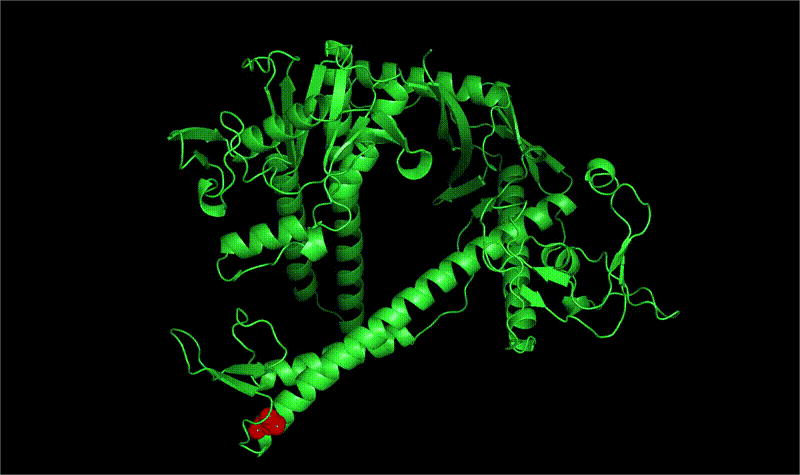
1. European Commission approved Pfizer’s HYMPAVZI™ (marstacimab) for hemophilia patients
Pfizer announced that the European Commission (EC) has approved HYMPAVZI™ (marstacimab) to treat patients with severe hemophilia A or hemophilia B. HYMPAVZI is an inhibitor for anti-tissue factor pathway and is administered once-weekly via the subcutaneous route. Hemophilia is a rare genetic blood disease caused by a clotting factor deficiency, where the loss of FVIII is characterized as hemophilia A and the loss of FIX is characterized as hemophilia B. The approval is supported by the open-label, multicentre Phase 3 BASIS study. In the 12-month active treatment period, HYMPAVZI significantly reduced the annualized bleeding rate (ABR) for treated bleeds by 35%. The treatment demonstrated substantial benefits in preventing and managing bleeding episodes in patients with hemophilia.Source: https://www.pfizer.com/news/press-release/press-release-detail/european-commission-approves-pfizers-hympavzitm-marstacimab
2. Subcutaneous dosage form of KEYTRUDA (Pembrolizumab) showed non-inferior efficacy and safety
Merck (known as MSD outside of the United States and Canada) recently announced new results from Phase 3 MK-3475A-D77 trial evaluating the subcutaneous form of KEYTRUDA (Pembrolizumab) with chemotherapy compared to intravenous dosage. 6-weekly subcutaneous administration demonstrated comparable Area Under the Curve exposure and trough concentration (Ctrough, the lowest drug concentration in the blood following the administered dose) which met its primary endpoint. Meanwhile, the efficacy and safety are also consistent with the IV form. Besides this study, there are also other trials ongoing evaluating the effects of subcutaneous KEYTRUDA in different perspectives.
3. Approval of WELIREG ® (belzutifan) in China targeting VHL disease-associated tumors
Merck’s WELIREG ® (belzutifan) has been approved for adult patients with certain Von Hippel-Lindau (VHL) disease-associated tumors. It is a first-in-class oral hypoxia-inducible factor-2 alpha (HIF-2α) inhibitor and is also the only approved HIF-2α inhibitor in China. The therapy has been previously approved in the US for associated renal cell carcinoma (RCC) and is supported by results from the Phase 2 LITESPARK-004 trial. In the trial, WELIREG showed an ORR of 49% in patients with VHL-associated RCC and an ORR of 63% in patients with VHL-associated CNS hemangioblastomas. This approval brings systemic and non-surgical therapy to help manage manifestations of VHL disease in patients from China.
4. Approval of ELAHERE® (mirvetuximab soravtansine) for ovarian cancer in Europe
The European Commission has approved Abbvie’s ELAHERE® (mirvetuximab soravtansine) for the treatment of adult patients with folate receptor-alpha (FRα) positive, platinum-resistant high grade serous epithelial ovarian cancer. This drug is an antibody-drug conjugate (ADC), targeting FRɑ - a highly expressed tumor marker. Patients are likely to develop platinum resistance after platinum-based chemotherapy and current treatment options for platinum-resistant ovarian cancer are also limited. The approval is supported by a global, open-label, randomized, controlled Phase 3 MIRASOL trial. They presented a 35% reduction in the risk of tumour progression or death in the treatment arm compared to the chemotherapy arm.
5. Icotrokinra (JNJ-2113) showed significant efficacy in managing moderate and severe psoriasis patients
Johnson & Johnson announced results from the ICONIC-LEAD trial investigating the effects of icotrokinra (JNJ-2113) in patients with moderate to severe plaque psoriasis (PsO). Compared to the placebo, icotrokinra showed significant skin clearance. Icotrokinra is the first oral peptide selectively blocking the IL-23 receptor. At week 16, 64.7% of patients treated with icotrokinra achieved IGA scores of 0/1 (clear or almost clear skin), and 49.6% achieved PASI 90, compared to 8.3% and 4.4% respectively in the placebo arm. At week 24, further improvement was observed. 74.1% of patients in the icotrokinra arm achieved IGA scores of 0/1, and 64.9% achieved PASI 90. The company is still aiming to expand the current trial and look for opportunities in other autoimmune-related indications.
6. Muvalaplin met its primary endpoints in reducing lipoprotein(a) level in a phase 2 study
Eli Lilly and Company announced results from a Phase 2 study evaluating muvalaplin, an investigational once-daily, orally administered selective inhibitor of lipoprotein(a) formation in adults with high risk for cardiovascular events. At 12 weeks, muvalaplin (10 mg, 60 mg and 240 mg) showed significant reductions in Lp(a) levels compared to placebo. The reductions were 47.6% (10 mg), 81.7% (60 mg) and 85.8% (240 mg) with the intact Lp(a) assay, and 40.4% (10 mg), 70.0% (60 mg) and 68.9% (240 mg) with the apo(a) assay. High levels of Lp(a) is a significant risk factor for atherosclerotic cardiovascular disease. Currently, there are no approved treatments to lower Lp(a), the development of this drug may meet this unmet need for people living with cardiovascular disease.
Source: https://investor.lilly.com/news-releases/news-release-details/lillys-muvalaplin-lowered-lipoproteina-levels-adults-high-risk
7. DZP showed better management of Lupus compared to standard of care in a Phase 3 trial
Biogen and UCB presented results from the Phase 3 PHOENYCS GO study which evaluates dapirolizumab pegol (DZP) on moderate-to-severe systemic lupus erythematosus (SLE). DZP is a humanized, Fc-free, polyethylene glycol (PEG)-conjugated antigen-binding (Fab') fragment that inhibits CD40L signalling. The primary endpoint was assessed by the British Isles Lupus Assessment Group (BILAG)-based Composite Lupus Assessment (BICLA). At 48 weeks, patients receiving DZP with the standard of care (SOC) had a 14.6% higher response rate than those receiving SOC alone. However, as for the secondary endpoints, there is a higher response rate in the treatment arm but not statistically significant. The safety results were consistent with previous DZP studies and the study participants are also receiving an immunomodulator. Participants from the current study will still be monitored in a long-term open-label study. UCB and Biogen are also planning to initiate a second Phase 3 trial.
8. Attruby™ (acoramidis) was approved in U.S. to treat rare heart disease
U.S. FDA has approved Attruby™ (acoramidis) from BridgeBio Pharma to treat adult patients with Transthyretin Amyloid Cardiomyopathy (ATTR-CM) to reduce cardiovascular death and cardiovascular-related hospitalization. ATTR-CM is caused by the build-up of misfolded proteins called transthyretin in the heart muscles. After the accumulation of amyloid deposits in the heart, it affects normal heart function and leads to potential heart failure. Attruby™ is an orally-administered Transthyretin stabilizer and the approval was based on the ATTRibute-CM Phase 3 study. The study enrolled over 600 participants who were split into Attruby or placebo groups (in the ratio of 2:1) for 30 months and the trial successfully met its primary endpoint of a 4-component composite endpoint of ACM, CVH, N-terminal prohormone of brain natriuretic peptide (NT-proBNP). The approval offers new first-line treatment for patients suffering from this rare disease and the company has also submitted a Marketing Authorization Application to the European Medicines Agency for approval.
https://www-nejm-org.libproxy1.nus.edu.sg/doi/full/10.1056/NEJMoa2305434









Post comments